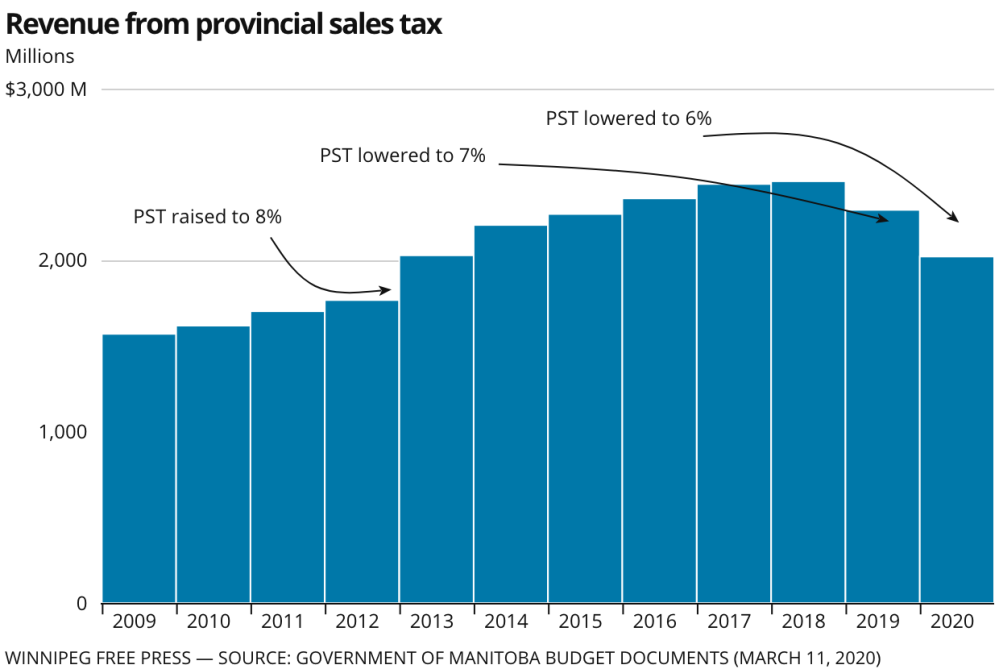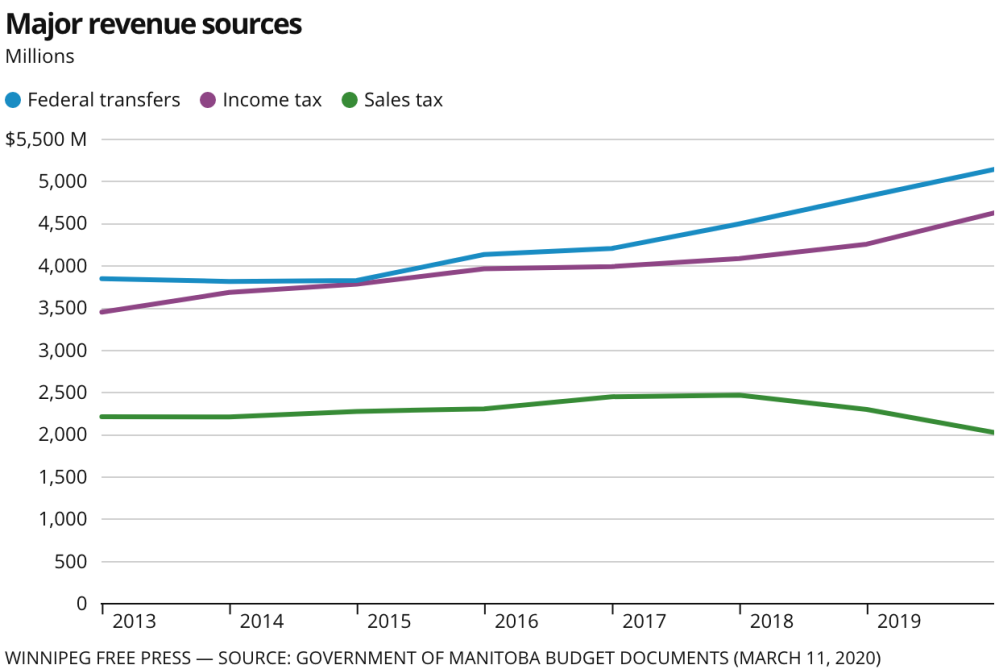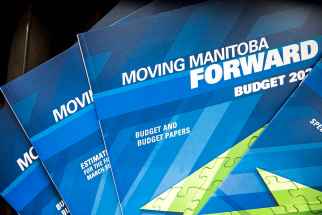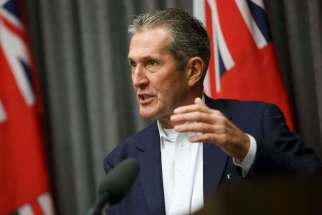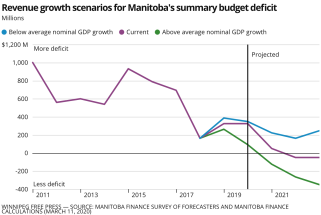Cutting taxes in uncertain times a senseless move Revenue losses will only mean larger deficit, higher debt
Read this article for free:
or
Already have an account? Log in here »
To continue reading, please subscribe:
Monthly Digital Subscription
$0 for the first 4 weeks*
- Enjoy unlimited reading on winnipegfreepress.com
- Read the E-Edition, our digital replica newspaper
- Access News Break, our award-winning app
- Play interactive puzzles
*No charge for 4 weeks then price increases to the regular rate of $19.00 plus GST every four weeks. Offer available to new and qualified returning subscribers only. Cancel any time.
Monthly Digital Subscription
$4.75/week*
- Enjoy unlimited reading on winnipegfreepress.com
- Read the E-Edition, our digital replica newspaper
- Access News Break, our award-winning app
- Play interactive puzzles
*Billed as $19 plus GST every four weeks. Cancel any time.
To continue reading, please subscribe:
Add Free Press access to your Brandon Sun subscription for only an additional
$1 for the first 4 weeks*
*Your next subscription payment will increase by $1.00 and you will be charged $16.99 plus GST for four weeks. After four weeks, your payment will increase to $23.99 plus GST every four weeks.
Read unlimited articles for free today:
or
Already have an account? Log in here »
Hey there, time traveller!
This article was published 19/03/2020 (2095 days ago), so information in it may no longer be current.
Despite the possibility his government could take a major financial hit this year due to the COVID-19 pandemic, Premier Brian Pallister is still going ahead with multiple tax cuts. It makes no sense.
Finance Minister Scott Fielding released a financial supplement that provides an update to the 2020 budget, which was finally unveiled Thursday. While it doesn’t restate the budget’s $220-million projected deficit, it acknowledges worldwide economic events of the past week renders budget projections moot. Depending on the severity of the economic downturn, Manitoba Finance is projecting a loss of revenues from $110 million to $482 million.
The department is also projecting additional health care costs from $50 million to $200 million. The combined hit to the treasury could be $682 million. But those projections don’t include added costs in other government departments, even though Manitoba Finance says most departments will incur added costs due to COVID-19. That means the impact could be as high as $800 million (or higher).
With the budget already showing a $220-million deficit, it could push the shortfall to $1 billion for the 2020-21 fiscal year. That may be a worst-case scenario. But given the uncertainty around global economic events, it’s a real possibility. That’s to say nothing of the threat of a major flood this year.
There are many steps government can take to offset a soaring deficit. Like most budgets, there are discretionary spending lines that can be deferred.
For example, the budget includes $120 million worth of “asset devolutions” that could be delayed a year or more, if necessary. They include a plan to turn Crown corporations such as the Manitoba Centennial Centre Corporation (the concert hall) and the Manitoba Habitat Heritage Corporation into not-for-profits. Taking those assets off the books is recorded as an expense.
Government could also delay the remediation of the so-called “fake funds” identified by Manitoba Finance, reducing costs by $93 million this year. Fees were collected in past years for funds such as the Manitoba Opportunities Fund and the Victim’s Assistance Fund that were recorded as revenues, yet not all the money collected was spent. The plan is to spend that money this year, which could be delayed if necessary.
Still, whether this year’s deficit ends up at $1 billion or less, it’s certainly not a time to cut taxes. Government will need all the revenue it can get over the next year or two to fight the COVID-19 virus and weather a global economic crisis. It needs sustainable revenues. Cutting taxes right now will only result in a larger deficit and a higher debt.
The decision to cut the PST is a $326-million annual revenue loss. That’s offset by the Pallister government’s new carbon tax, which will bring in an estimated $284 million. A plan to cut the payroll tax will reduce revenues by $9 million. All told, along with other tax changes, the Pallister government is cutting taxes and fees by a net $83.3 million on annual basis.
Pallister argues those cuts will put more money into all Manitobans’ pockets. That’s true. But it will also cost the public treasury $83.3 million annually at a time when government should be targeting spending where it’s needed the most.
The economic fallout from the COVID-19 pandemic could be worse than government is predicting. Manitoba Finance is expecting economic decline in the first two quarters of 2020-21, but is counting on a rebound by the fourth quarter. That may be overly optimistic.
The fact is, even the most accurate economic forecasters can’t give us a ballpark outlook of where the world economy will go over the next 12 to 24 months. There are far too many failing sectors of the economy, job losses, and supply chain disruptions to make a reasonable projection. Add in the recent collapse of world oil prices and it’s virtually impossible.
Government has the fiscal capacity and liquidity to spend the money it needs to fight COVID-19. It will make whatever spending adjustments are required along the way to do so. Most of the expenditure estimates in the budget are already out of date.
Reducing revenues, at a time when the province is on the brink of recession (and in the middle of a pandemic), seems like an imprudent thing to do.

Tom has been covering Manitoba politics since the early 1990s and joined the Winnipeg Free Press news team in 2019.
Our newsroom depends on a growing audience of readers to power our journalism. If you are not a paid reader, please consider becoming a subscriber.
Our newsroom depends on its audience of readers to power our journalism. Thank you for your support.
History
Updated on Thursday, March 19, 2020 11:20 PM CDT: Fixes grammar

